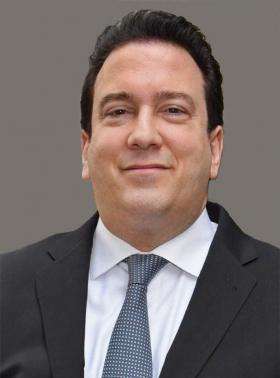Depoliticize the Martin Act In the wrong attorney general's hands, the New York statute is a weapon of mass destruction against business
Written on Feb, 12 2019 16:43

Former Attorney General Eric Schneiderman built a reputation as a rising Democrat by using an anti-fraud law called the Martin Act to attack public companies, particularly on environmental issues. (Schneiderman resigned in May after a report alleging domestic violence and was replaced by Barbara Underwood, who is not running for a full term.)
Enacted in 1921, the Martin Act has been the most fearsome weapon in the New York attorney general's arsenal. It’s the legal equivalent of a weapon of mass destruction. As defined by New York courts, the law covers “all acts” that may “deceive or mislead the purchasing public,” even those without “any actual evil design or contrivance to perpetrate fraud or injury upon others.”
Unfortunately, the loss of shareholder value in a firm under public investigation is typically much greater than any potential liability or fines for illegal activity. This market-correcting mechanism makes sense when a firm is actually guilty of bad behavior. But companies who have not violated the law still face unrelenting pressure to settle a case to avoid a sustained attack and open-ended investigation by the attorney general.
Defenders of the AG’s Martin Act powers argue that the ends justify the means, and the office has succeeded in extracting multibillion-dollar settlements from companies that also reformed their business practices. But the same dubious methods can be used by future AGs against the innocent as well, forcing them into unjust settlements. Those bullying tactics also undermine public confidence in the legitimacy of the rule of law as one man or woman’s preference is substituted for a clear legal standard. Looking back, we can only consider what Schneiderman's motivations were.
One reason the Martin Act has faced little judicial scrutiny is that virtually all companies settle rather than risk total destruction of the enterprise at trial. No financial firm has ever recovered from a criminal indictment, and a company has a duty not to gamble with shareholders’ money--even if executives think the evidence will likely vindicate them.
Legislators in Albany seem unwilling to challenge the AG’s office. The only recent limitation to the Martin Act came in June when New York’s top court ruled that the statute of limitations on Martin Act cases should be limited to three years.
Congress, though, should advance the Securities Fraud Act of 2018, co-sponsored by New York Reps. Claudia Tenney and John Faso. The bill, authorized under the Constitution’s commerce clause, would address this problem by pre-empting state enforcement of civil securities fraud.
The bill would continue to allow states to prosecute criminal fraud. Ponzi schemers could still be prosecuted by the attorney general. This law would bolster capital markets by standardizing the rules, similar to when Congress passed a law in 1996 exempting nationally traded securities from being subject to 50 different sets of state regulations.
State enforcement is often duplicative. Vanderbilt professors Amanda Rose and Larry LeBlanc examined three years of SEC filings for nearly 2,000 companies listed on the New York Stock Exchange. They found that federal authorities brought a related enforcement action 91% of the time that state regulators pursued a securities investigation. Politics also increases the motivation for regulators to find violations. Elected regulators were four times more likely to bring enforcement actions than appointed ones.
It’s rare for a candidate to suggest that the authority of the office to which he or she seeks should be limited. Ultimately, we should all strive for effective regulation, but the Martin Act is too prone to potential misuse to be wielded by a partisan Republican or Democrat.
Опубликовано от имени:
Manny Alicandro for Public Advocate
Мэнни вступил в гонку на должность общественного адвоката, потому что, как и всем нам,ему надоела дисфункция мэрии. Мэнни будет бороться за всех жителей Нью-Йорка и станет истинным независимым омбудсменом, который будет отвечать за мэра де Блазио и городской совет.






